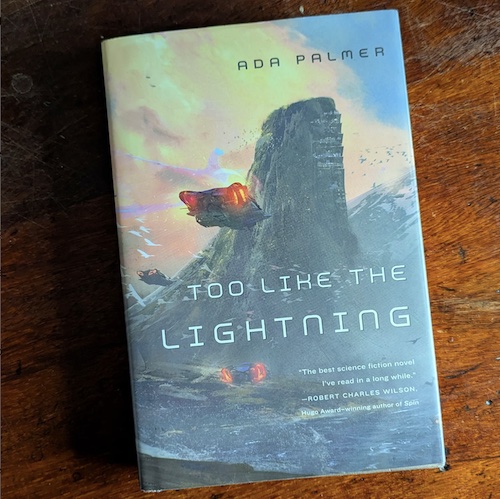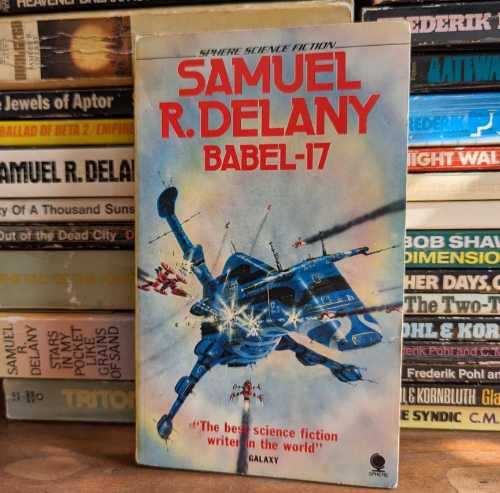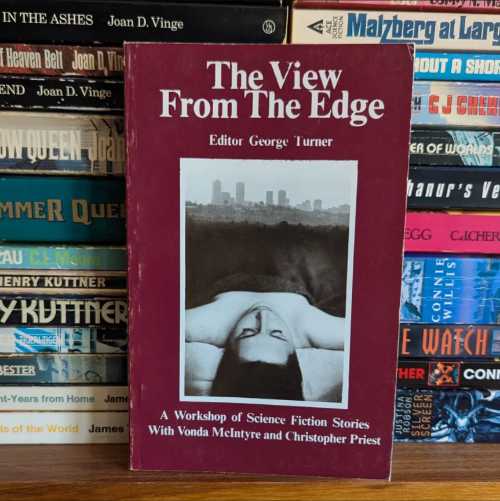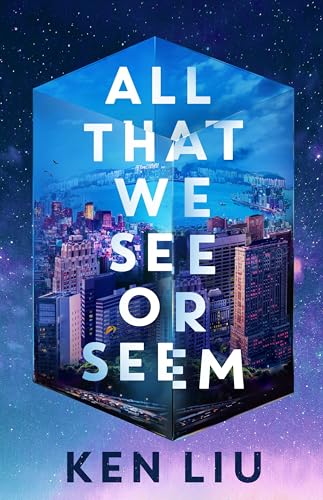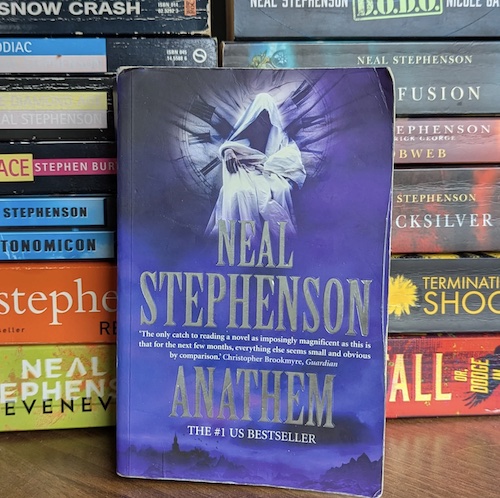Too Like the Lightning
★★★★★In a post-scarcity far future, near-instantaneous transportation and an itinerant population have destroyed nation-states. Allegiances are now voluntary, dividing the population into a handful of powerful factions offering varied political systems.
This book is the most challenging I’ve read in a while. Initially presenting as magical realism, it is instead a deeply political and philosophical work. With minimal exposition, you’re thrust straight into a world of complex politics, Renaissance sensibilities, and baroque culture. The prose is dense, the narration unreliable, names are mutable, and neologisms abound. You’re forced to embrace the narrative and wait for understanding later. For some this will be deeply satisfying, for others a reason to dnf.
We follow Mycroft, a criminal serving a sentence of servitude with a secret - he’s hiding a boy with wish-granting powers. Surprisingly, this thread loses focus to a seemingly trivial theft of a list of influencers. Halfway, the book hits its stride and the worldbuilding starts to gel, it becomes clear why the list is so incendiary. It gets dark fast. What initially appears to be an agnostic utopian society reveals itself as feudal, violent and corrupt morphing individual freedom into authoritarian control.
Palmer weaves in copious historical and literary references alongside reflections on classical philosophy. It can feel extremely geeky at times; Renaissance cosplay reminiscent of Stephenson’s Victoriana-obsessed Diamond Age. Many will love these extensive ornate tracts, though I could live without the fourth wall breaking and meta-commentary that often felt repetitive.
But it all comes together, the power plays, the factions, and why the stakes are so high. The world, initially so different and so confusing, falls into place - and it’s amazing because of its challenge. So many utopias are just our world with polish, but Palmer has built something which is confusingly different, challenging to understand, but so rewarding when you do. Despite its flaws, its sheer ambition and long-term impact mean it’s a stone-cold 5 out of 5.
